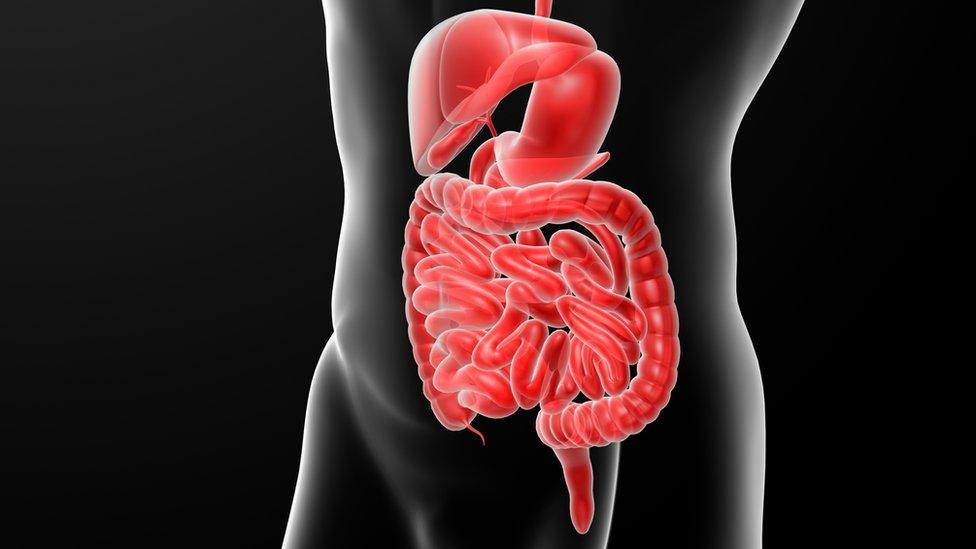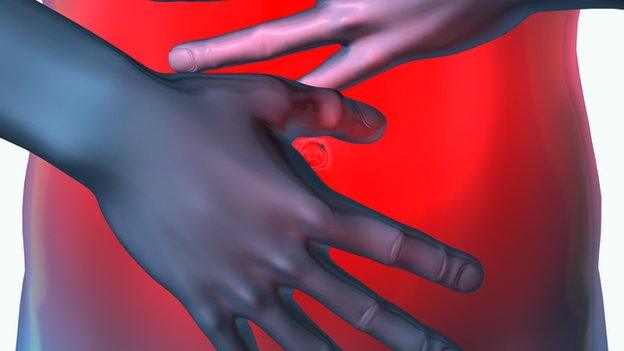Bowel disease patients in lifestyle study
- Published

People with debilitating bowel conditions are being invited to take part in a study to better understand what causes the diseases to worsen.
University of Edinburgh researchers want to shed light on everyday factors that may influence flare-ups of Crohn's disease or ulcerative colitis.
They also want to investigate how changes in diet and lifestyle might help sufferers.
The study will collect data from 1,500 patients in Scotland and England.
It is being led by the university and NHS Lothian.
Participants will be asked to complete online questionnaires about their eating, exercise and sleeping habits and monitor feelings of stress and anxiety.
They will also be asked to provide mouth swabs and stool samples so researchers can analyse their DNA and examine bacteria living in their gut.
Bowel inflammation
Those taking part will provide monthly updates for two years, detailing how well their symptoms are being controlled and any significant events.
Experts will compare information from those who experience flare-ups with those who do not. They hope to pinpoint everyday factors that could contribute to the onset of symptoms.
Crohn's disease and ulcerative colitis are caused by inflammation in the bowel.
About one in 200 people in the UK are living with the conditions and young people are particularly affected.
Symptoms include severe abdominal cramps, diarrhoea, nausea and tiredness that can affect all aspects of day-to-day life.
Lifestyle changes
Current treatments are focused on alleviating the symptoms but patient responses vary. There is no cure.
Researchers from the University of Aberdeen will provide expertise in diet and nutrition plus analysis of participants' gut bacteria during the study.
The research is being funded by two charities - Cure Crohn's Colitis, and Crohn's and Colitis in Childhood - as well as the Scottish government's Chief Scientist Office.
Chief investigator Dr Charlie Lees said: "Patients often ask us whether there are any changes to their diet or lifestyle that would help to better manage their symptoms.
"We hope the findings from this study will give us the evidence base needed to provide better advice for those living with these debilitating diseases."
- Published12 August 2015

- Published8 February 2014
